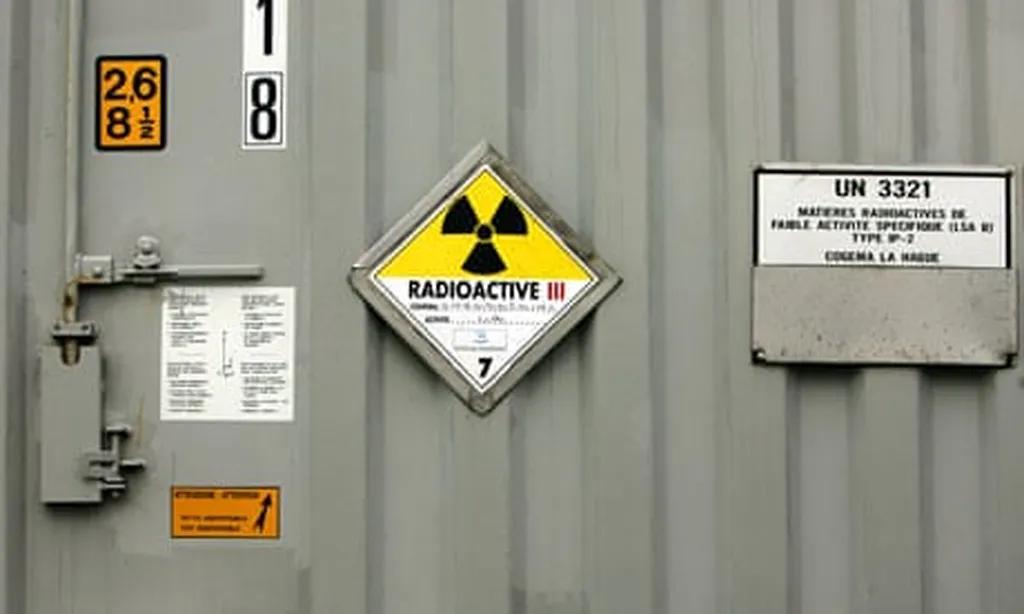In the heart of Beijing, researchers are tackling one of the most critical challenges facing the nuclear energy sector: the safe and permanent disposal of high-level radioactive waste (HLW). Duo Zhou, a leading expert from the China Institute of Atomic Energy, has published a comprehensive review in the journal *He huaxue yu fangshe huaxue*, translated as *Nuclear Chemistry and Radiochemistry*, shedding light on the current status and hurdles in this complex field.
Nuclear energy, celebrated for its low-carbon footprint and high efficiency, hinges on its ability to manage the HLW generated during operation. “The safe disposal of HLW is the closing loop of the full life-cycle management of nuclear energy technology,” Zhou explains. “It’s not just a technical challenge; it’s a core issue concerning energy strategy, environmental protection, and societal trust.”
The core challenges are multidimensional. The deep geological environment of a repository is fraught with variables, making the prediction of radionuclide release, dissolution, migration pathways, and rates exceedingly difficult. “The complexity and uncertainty of radionuclide migration constitute the core scientific difficulty,” Zhou notes. Over ten-thousand-year timescales, the deep geological environment evolves, influenced by groundwater chemistry, mineral composition, microbial activity, temperature, and stress fields.
The long-term stability of the multi-barrier system is paramount. An ideal repository relies on a “defense-in-depth” strategy, combining an engineered barrier system (EBS) and a natural barrier system (NBS). However, the degradation mechanisms of materials under high temperature, high radiation, chemical corrosion, mechanical stress, and over vast geological time scales remain a major research topic.
Safety assessment over ten-thousand-year timescales presents a unique challenge. Human experience and experimental data cannot directly cover such vast time spans. Safety assessments heavily depend on mathematical models and scenario simulations, the reliability of which hinges critically on the depth of understanding of key processes and the accuracy of model parameters.
The socio-technical coordination challenge cannot be ignored. Even if a technical solution is scientifically feasible, socio-political factors such as public participation, risk communication, decision-making transparency, ethical considerations, and long-term stewardship responsibilities are often as important as, or even more critical than the technical challenges.
Significant progress has been achieved in understanding radionuclide migration mechanisms, developing barrier materials, and advancing safety assessment methodologies. However, challenges remain, such as uncertainties in ultra-long-term prediction, experimental validation of barrier material behavior under extreme conditions, simulation of complex coupled processes, and assessment of low-probability, high-consequence events.
Zhou’s research offers perspectives on future research directions, such as developing more intelligent in-situ monitoring technologies, exploring novel high-durability barrier materials, creating advanced methods for uncertainty quantification and model verification & validation (V&V), strengthening research on the integrated behavior of the geological disposal system (EBS-NBS coupling), deepening socio-technical systems integration studies, and promoting international collaboration and knowledge-sharing platforms.
The implications for the energy sector are profound. As nuclear energy continues to play a pivotal role in the global transition to clean energy, the safe disposal of HLW will be crucial. Zhou’s work not only advances our understanding of radionuclide migration and barrier system stability but also paves the way for more robust safety assessments and informed decision-making.
In the words of Zhou, “The safe disposal of high-level waste is not merely a technical challenge; it is a core issue concerning energy strategy, environmental protection, and societal trust.” As the world grapples with the complexities of nuclear waste management, Zhou’s research offers a beacon of hope, guiding the way towards a safer, more sustainable future for nuclear energy.

